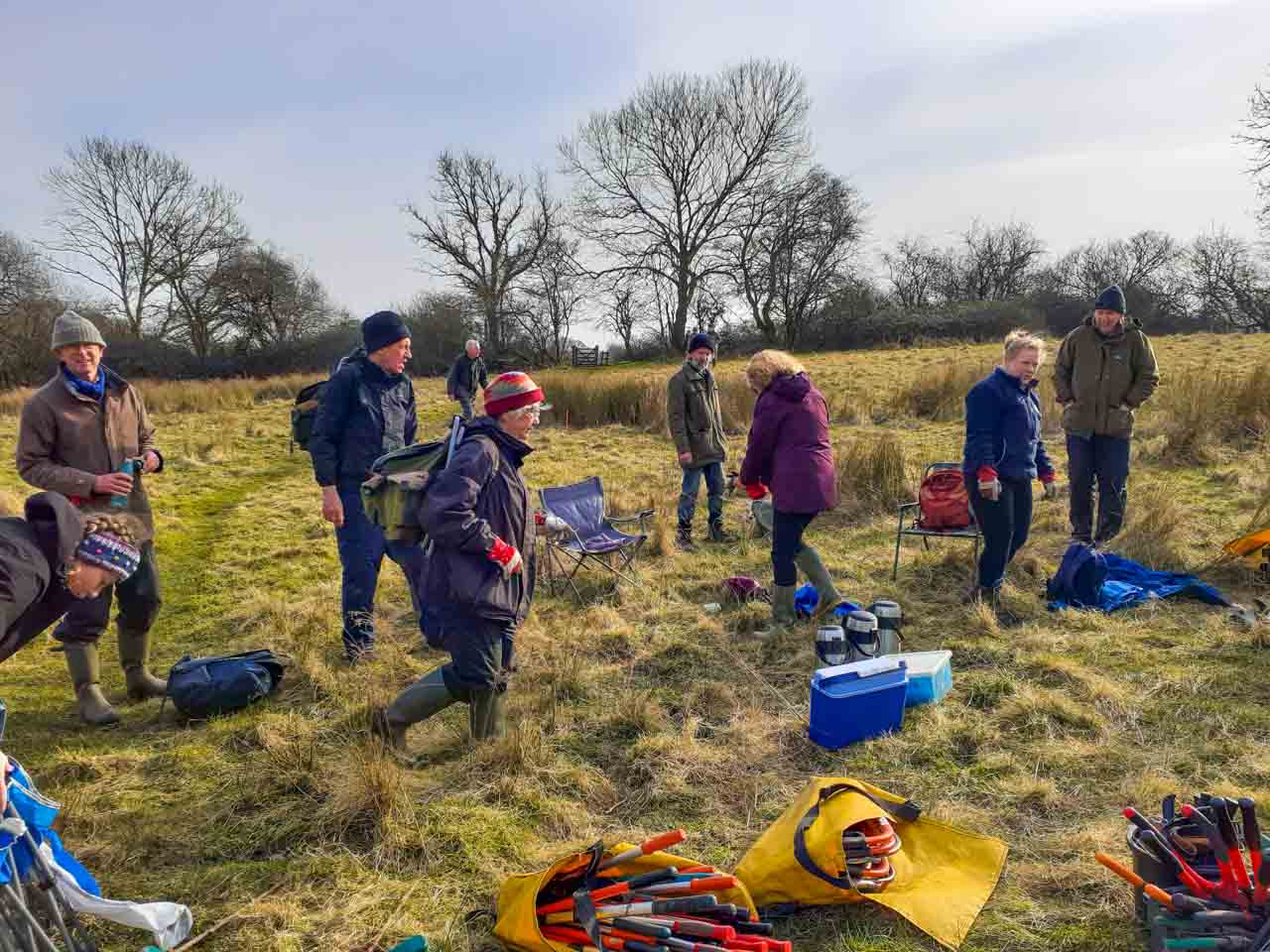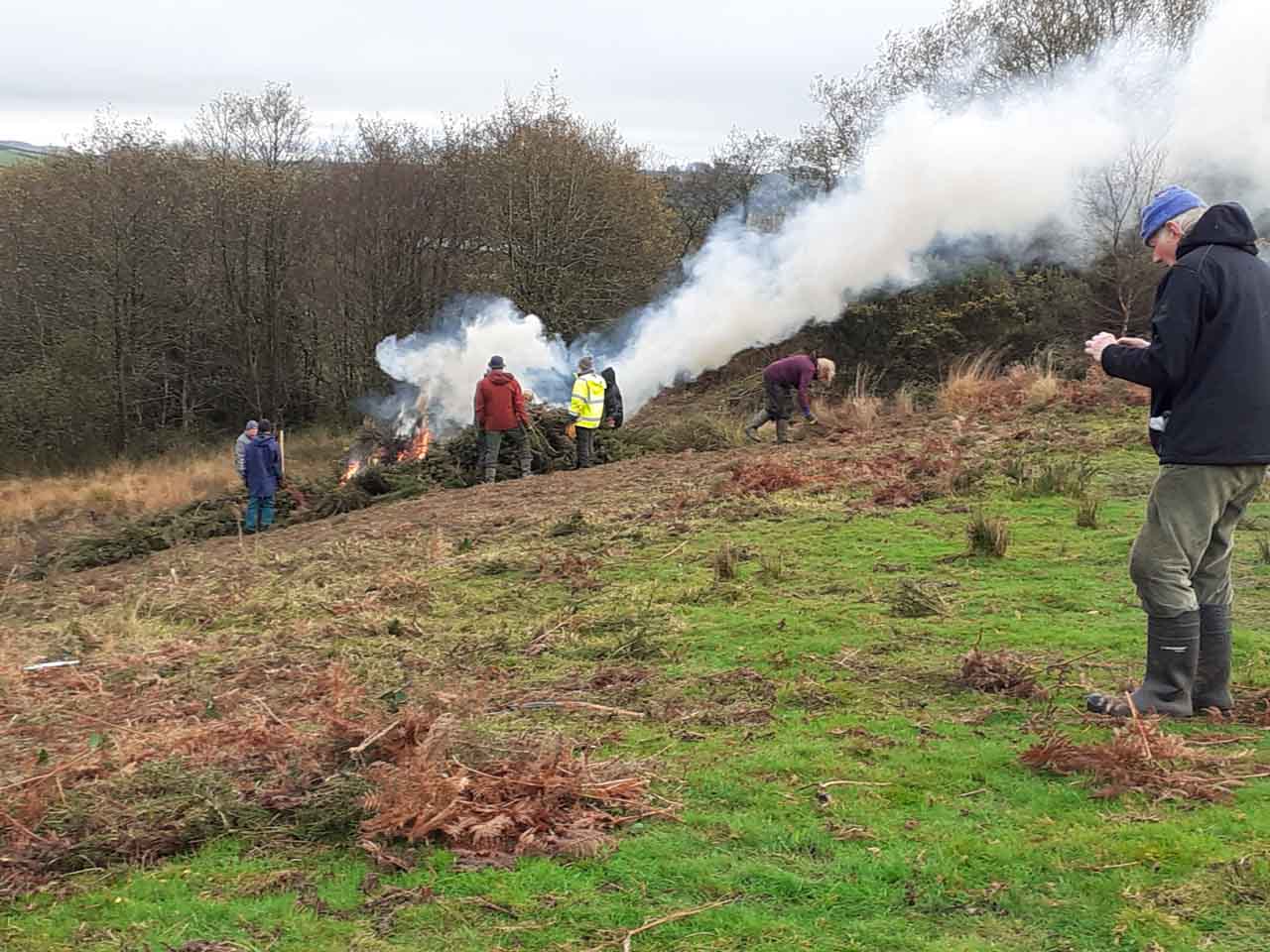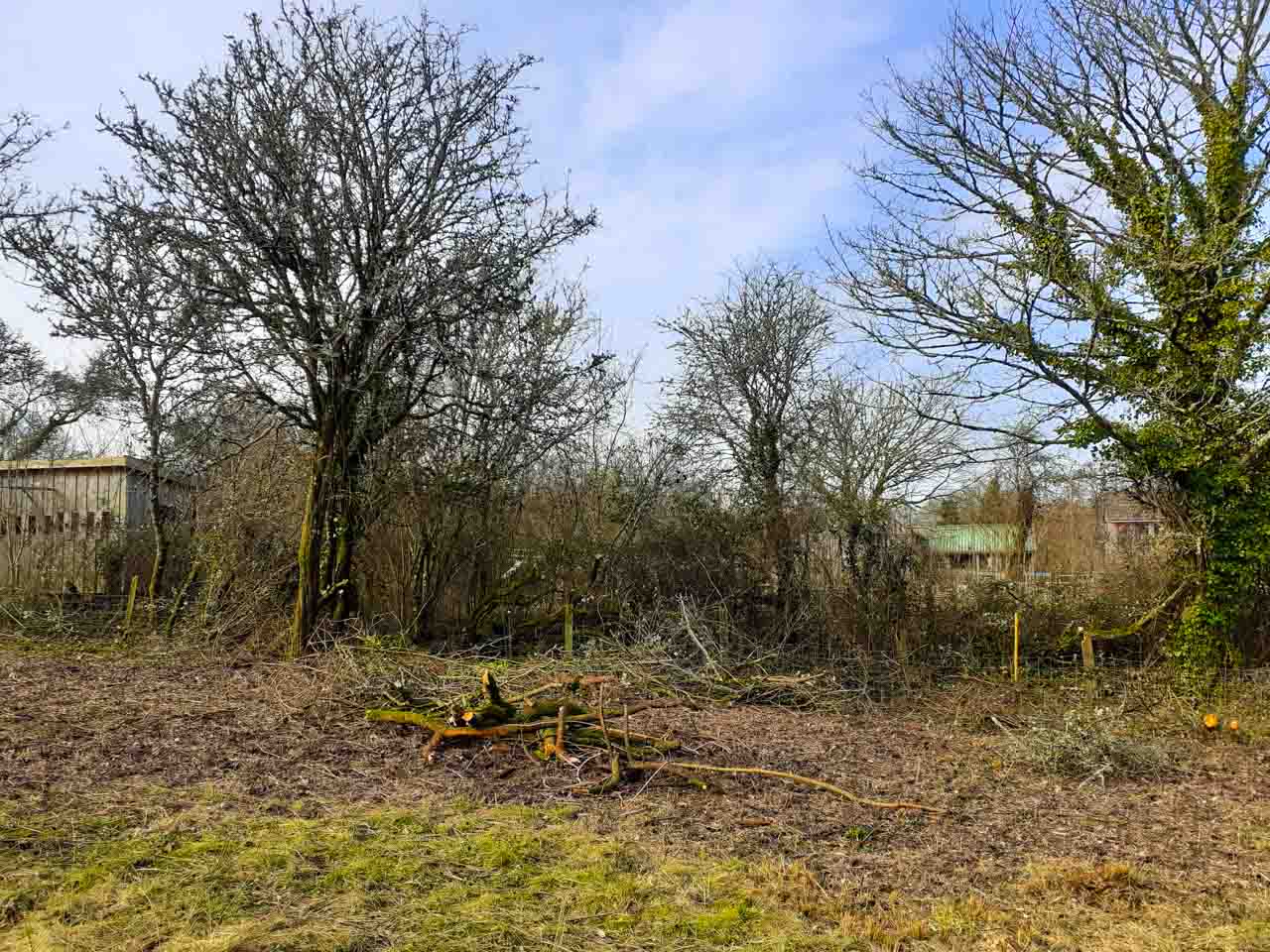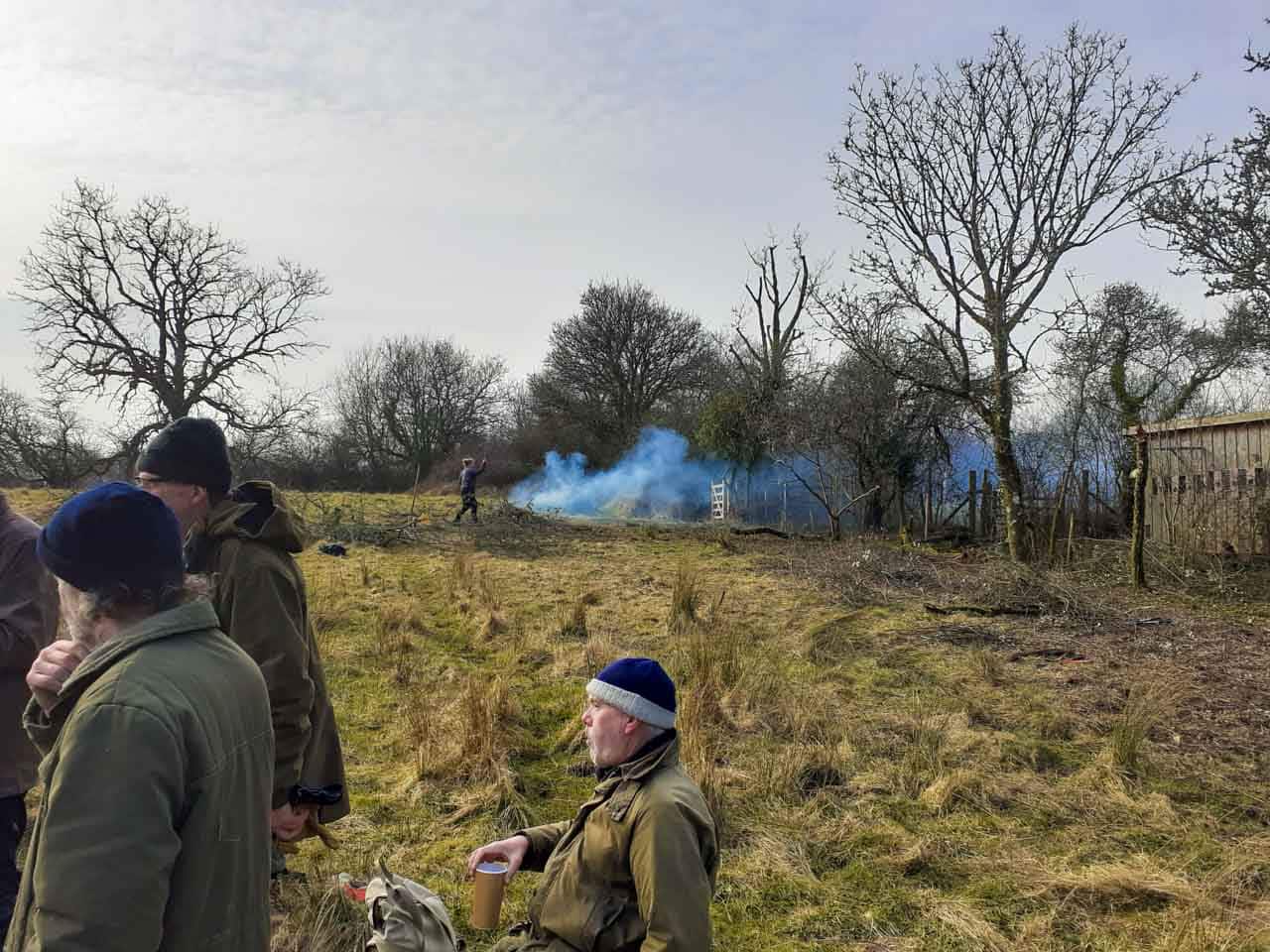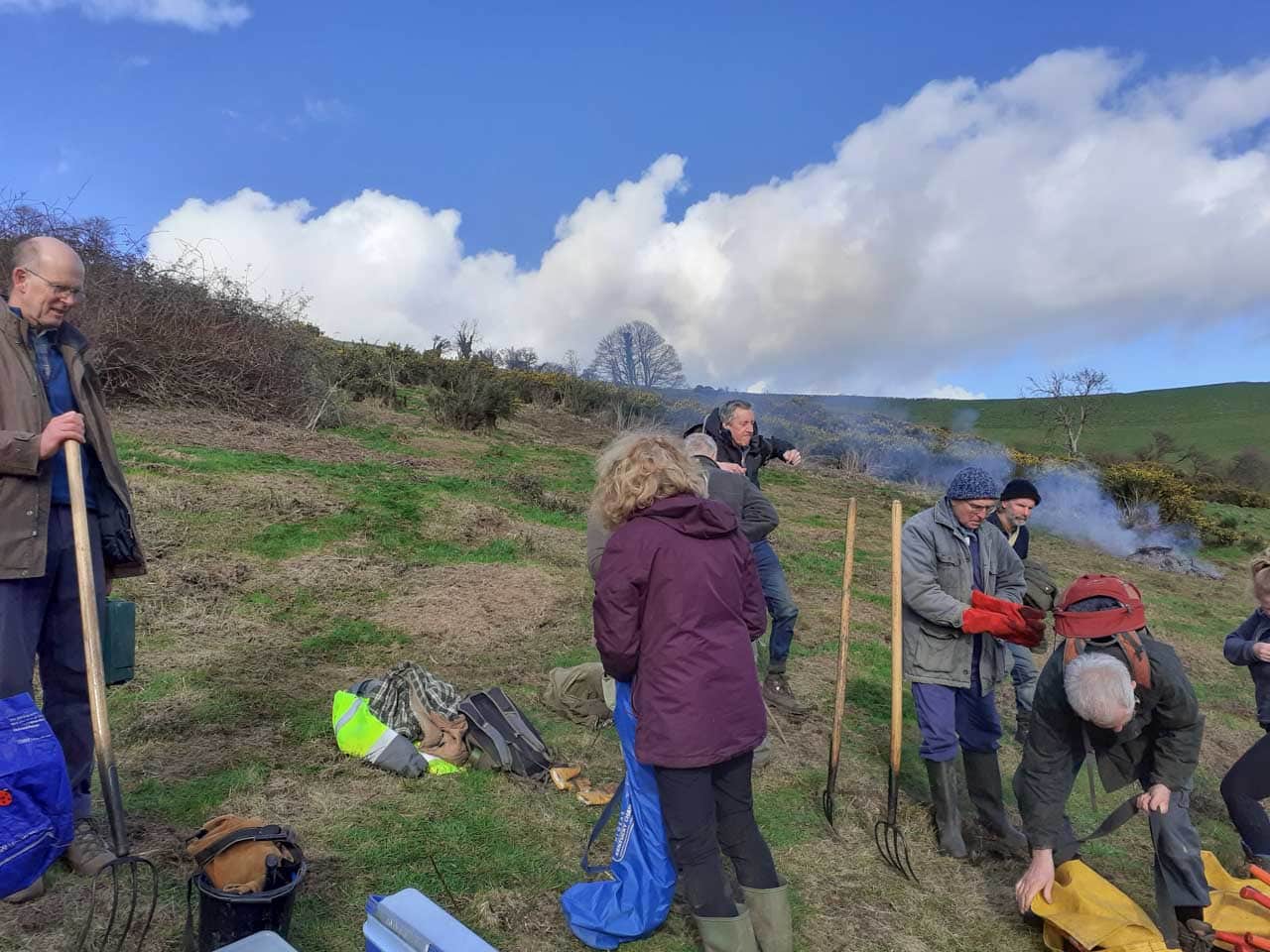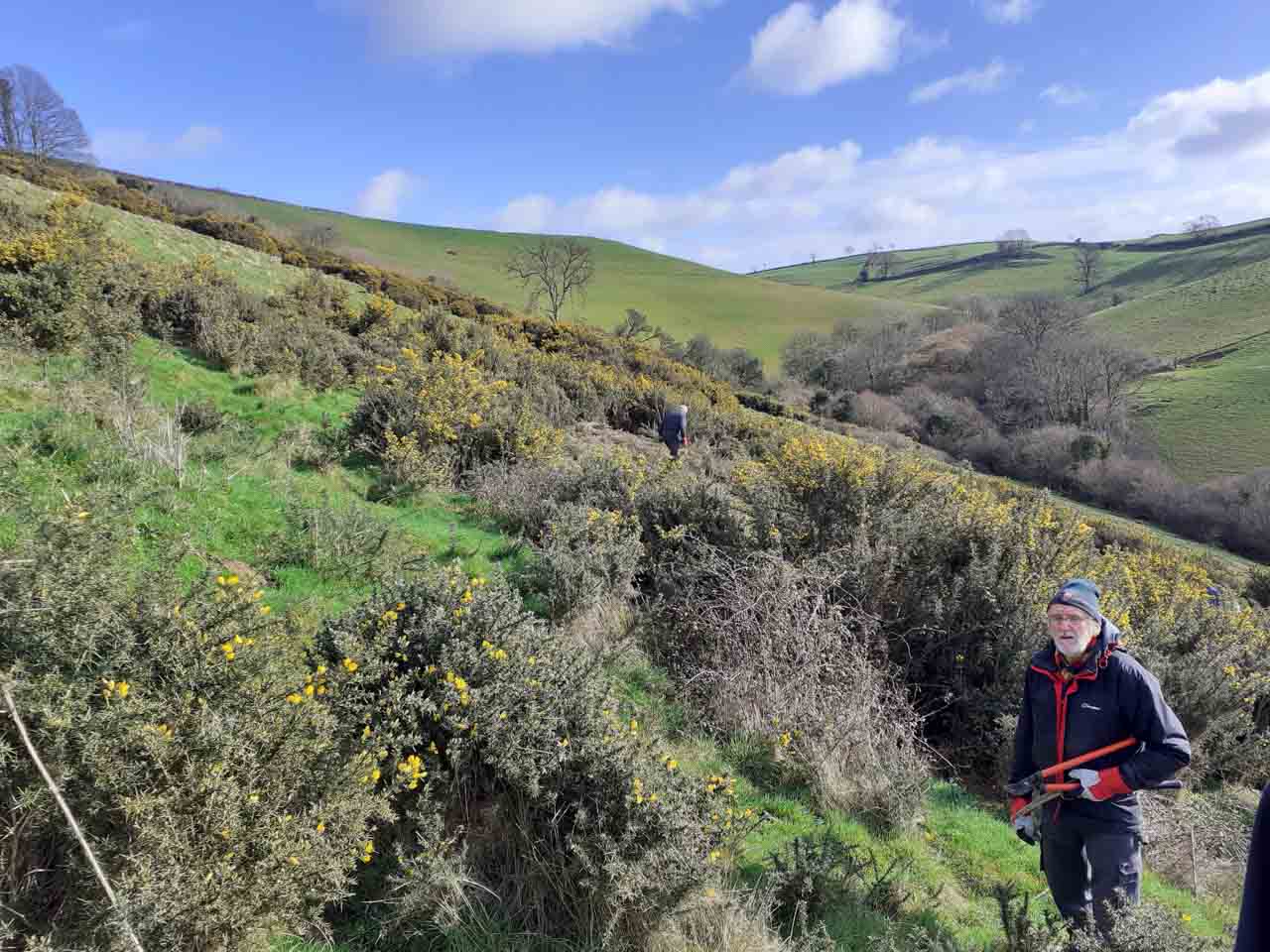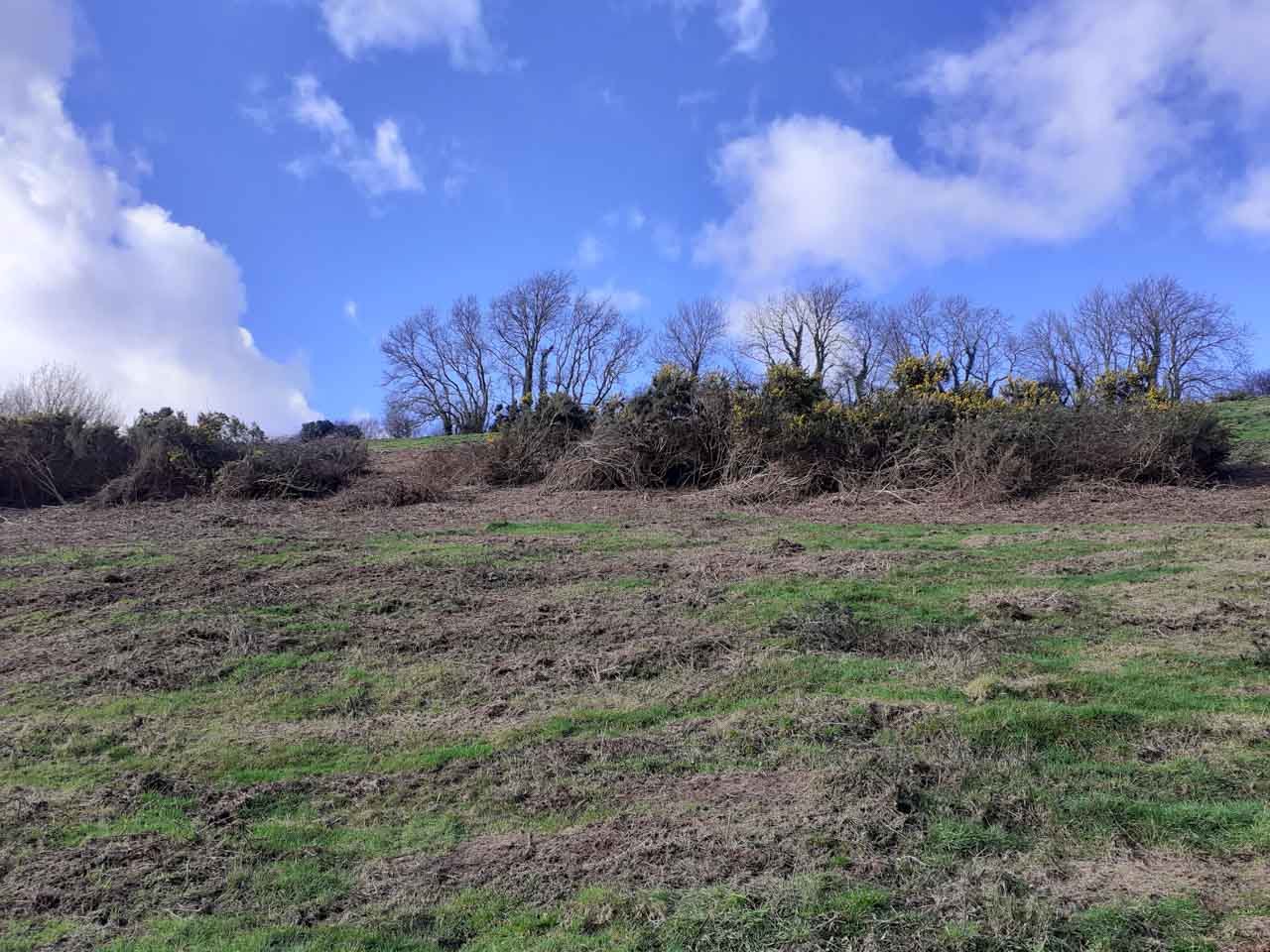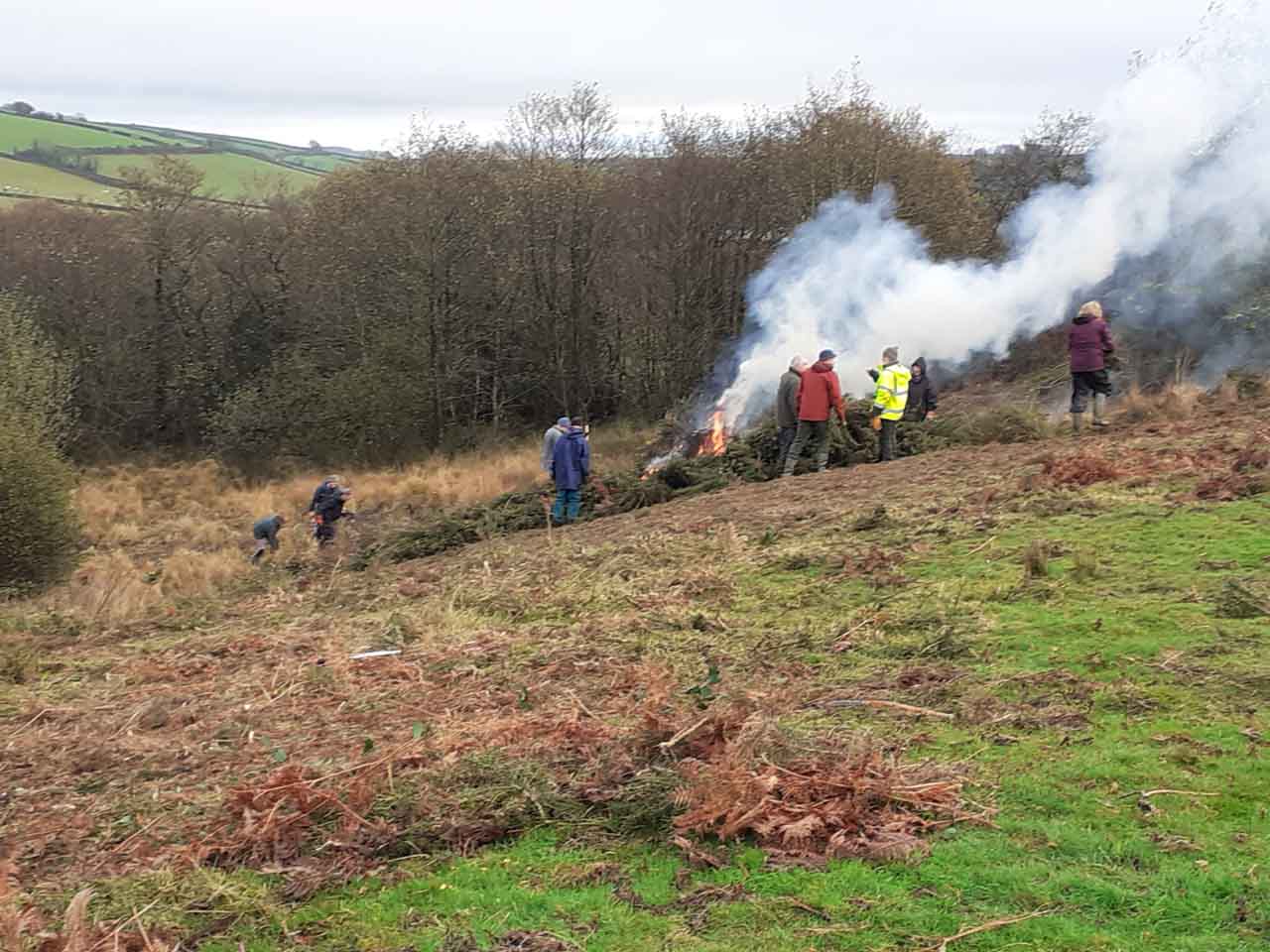Dorset Wildlife Volunteers
Ever thought about volunteering for the Dorset Wildlife Trust? I will tell you a little bit about my experiences since I started volunteering, approximately 5 years ago.
At that time I was living in Poole and signed-up for work experiences both on the local heathlands and on Brownsea Island. The work on the heaths was mainly clearing invasive species such as rhododendron, gorse and birch. We also cleared scrapes for invertebrates and bees. On Brownsea where there is a wealth of birdlife as well as rare flora and fauna, we similarly cleared invasive growth as well as preparing ponds and shaping bird islands in the lagoon. Brownsea is always a joy to visit with a wealth of birdsong accompanying you. We would be picked up in the morning from the jetty next to the car ferry to Purbeck and returned there in the afternoon.
Since moving to Cattistock I have joined the West Dorset Group and the North Dorset Group. Driving distance for me is a factor and much of the North Dorset Groups activities are in the north-east of the county but when they work at Brackett’s Coppice (near Corscombe) I have joined them to help with scrub clearance. We also prepared dead-hedging (forming a hedge out of cut brash and branches to keep out deer to allow recovery of young trees and other flora) at Girdler’s Coppice, Fiddleford.
Mostly I work with West Dorset on a Tuesday, although other workdays are available for different tasks. The work is supervised by a staff member or Warden, and we might meet at the Kingcombe Centre or at a specific Nature Reserve. Some of the regulars also volunteer on a Sunday. Parking is in a pre-arranged location.
Activities can include clearing hedges, removing old fencing and posts, hedge laying, scrub removal, surveys of flora species etc.
New members are always welcomed but do check the website first and sign-up for a task as numbers have to be limited especially if space for parking is limited. A minibus is sometimes laid on in these instances with us all meeting at the Kingcombe Centre. No previous knowledge of how to carry out tasks is necessary as a briefing and safety talk is given. More intense courses are available at a fee for those who wish to become more expert at laying hedges or identifying birdsong or fungi, for instance. I learnt hedge-laying 4 years ago over a two-day course with practical advice on a rather overgrown hedge at Corfe Mullen.
There is a morning coffee or tea break provided by DWT and we take packed-lunches and folding chairs for lunchtime. We work in most weather but once Spring and the bird nesting season arrives we only work fortnightly and avoiding disturbing bird habitats.
If one of the volunteers spots a rare Orchid or fungi (or recently a hibernating adder) we take time out to view and discuss!
I recommend this healthy outside activity as it is always fun and friendly. We all care about Nature and protecting endangered species and habitats and all are welcome to query why certain species are favoured in certain habitats in order to get a better understanding from the DWT team. It is also a very social occasion, and we can have as many as 15 people in a work party. More information can be found on the DWT website under the volunteering section (www.dorsetwildlifetrust.org.uk/get-involved/volunteering).
There are other activities available such as maintaining the garden at Kingcombe or promoting the charity and all these with their dates and availability can be found on that page.
Regards,
Colin Fulton

